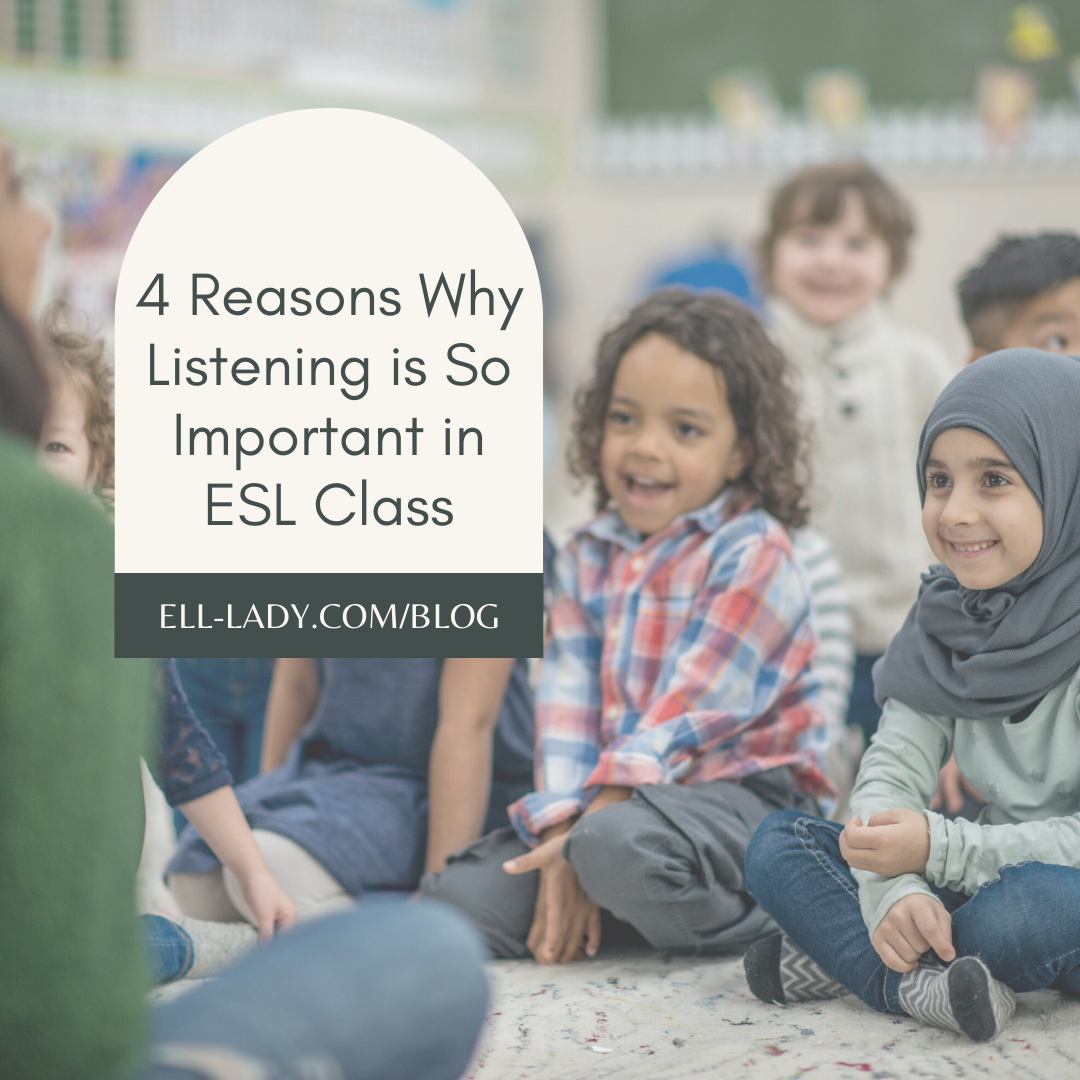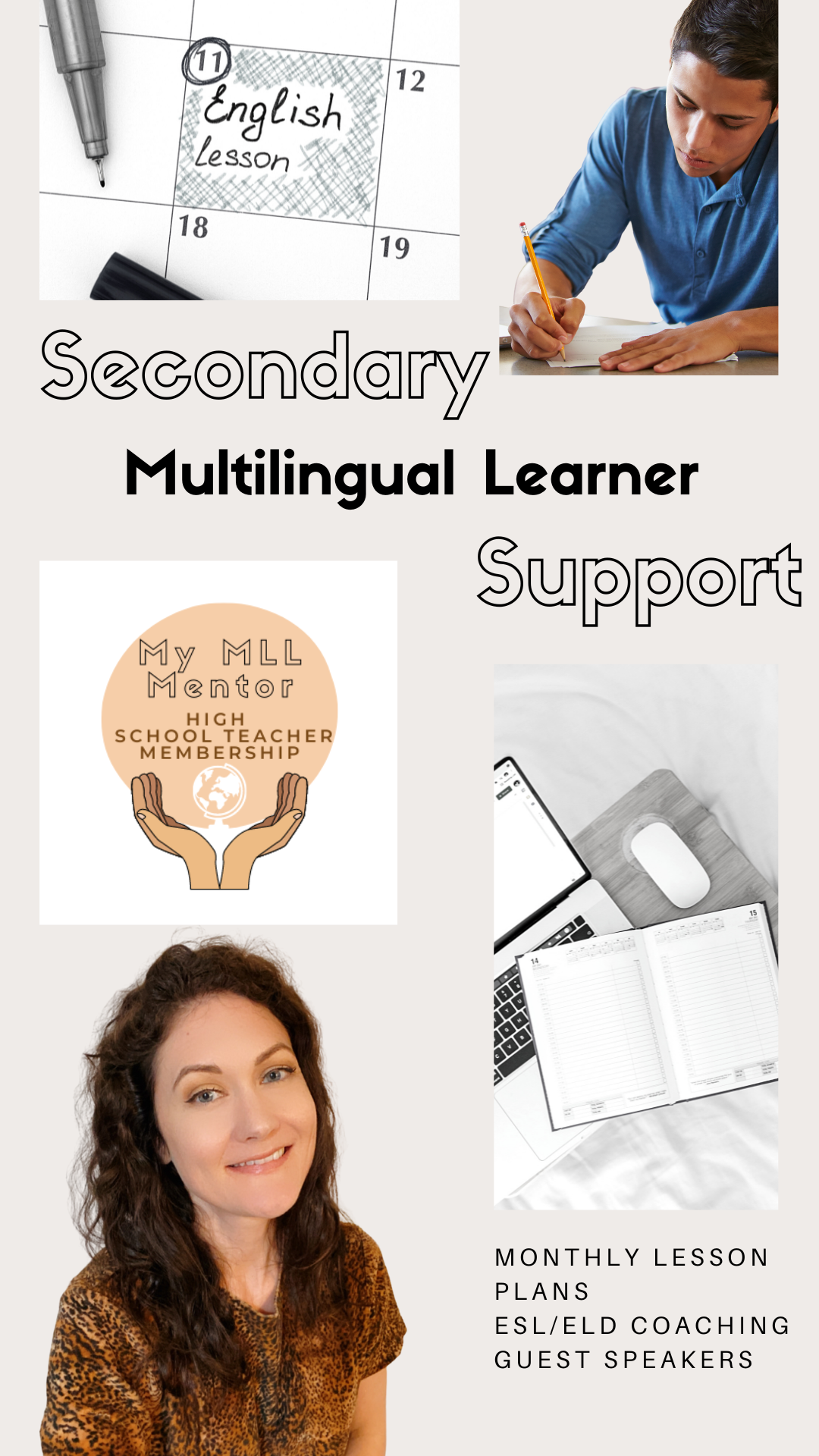|
Listening oftentimes gets underutilized in the ESL classroom. After all, our multilingual learners, or English language learners, are always listening, right?? We don't even need to practice because it's just always happening!
Wrong! Respectfully wrong. It is true that they are always listening, but it doesn't mean that we can skip practicing this language domain altogether. Our MLLs, or ELLs, need specific, targeted practice with the language being used throughout the lesson. This is especially important since our language assessments, such as WIDA, has a listening section! We need to get our students into the habit of practicing listening skills the way they will encounter them on our assessments. But let's back up a second. What does the research say? Listening is a part of language input. The two input or receptive domains are listening and reading. Our MLs are taking those words and content in. The two output or productive domains are speaking and writing. They are putting those words and content out through discourse and routine writing. So listening is equally important for our multilingual students. According to Stephen Krashen's Input Hypothesis, comprehensible input happens when the learner improves and progresses along the 'natural order' when he/she receives second language 'input' that is one step beyond his/her current stage of linguistic competence. This is when language acquisition happens. Listening is just one piece to comprehensible input. Another reason why listening is so important in the ESL classroom is because it gives our language learners motivation for speaking. In The Significance of Listening Comprehension in English Language Teaching, the author states that "since learners' self-reliance in listening comprehension will be increased, they will be motivated to have access to spoken English such as conversations with native speakers (Kurita, 2012). How many times have you high school teachers heard from your newcomer ESL students that they'd like to learn English to speak with a cute boy or girl in school? Let them know that by practicing their listening skills, they are one step closer! And finally, let's look at the listening and reading connection. Students, such as our Newcomers multilingual students, who may not be able to read on grade-level can still enhance their language learning by practicing listening with cloze activities and listening to read alouds in the content areas. According to the Listenwise blog, students can listen on a higher language level than they can read, so listening provides a way to improve students’ language skills, making complex ideas more accessible to students and exposing them to vocabulary and language patterns that are not part of their everyday speech (Fountas and Pinnell 1996). In addition, Reading Rockets says that decades of research, not to mention personal experiences, confirm that listening comprehension outpaces reading comprehension from early childhood through at least middle school. So what does this mean? The next time you are reading Romeo and Juliet to your newcomers, don't doubt that they aren't comprehending and enjoying the love story! Shakespeare may be a little more difficult, but by adding in scaffolds and pairing that with the movie, they are sure to comprehend. Let's round up our reasons for practicing listening with our ESL students: 1. They have a listening section in their state assessments! 2. The research tells us that language acquisition happens when there is comprehensible input; listening is language input along with reading. Therefore, listening is imperative for language learning. 3. Listening skills gives our students motivation for speaking! 4. The reading and listening connection. I have a listening component in just about every one of my lesson plans for my high school teacher membership, My MLL Mentor. Check out one of them here for Thanksgiving!
0 Comments
Leave a Reply. |
AuthorI support middle and high school teachers through monthly lesson plans, coaching, and guest speaker offerings in our Secondary ESL Teacher Membership. Archives
April 2023
Categories
All
|



 RSS Feed
RSS Feed
